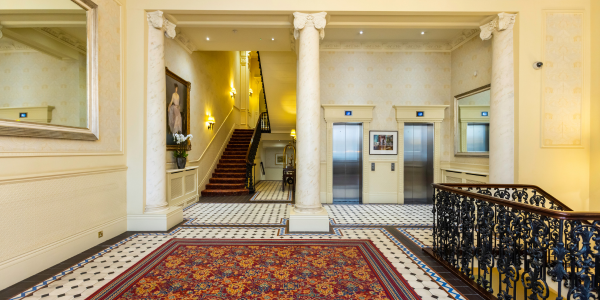It is December and the end of another year. It has been a tumultuous time for us all, and Cube Controls, as with other companies, has had to adapt to a new reality of working. Yet, more than ever, it is clear that the work we do is a vital cog in bringing safety back to the workplace.
Here we review 2021 and look forward to 2022.
Our turbulent recent times
Since March 2020, when we first felt the impact of COVID-19 in the UK, the quality of the air we breathe has been paramount. As such, Cube Controls has continued to deploy sensor arrays within commercial buildings to monitor air quality and general occupancy levels. Paired with controlled air volume management, we have helped our clients provide good quality air for all parts of their building. Our ability to augment a BMS with a Smart Control layer has made this kind of control a reality for our customers.
With the continued impact of COVID-19, Smart building control has aided our clients in a safe return to work. With the Internet of Things connectivity, BMS ensures that the right number of people with the right air quality can work within a commercial building. This peace of mind is something that we barely knew we needed two years ago. Now, it is something that we can no longer take for granted.
Cube Controls not only protects against this current threat but we have also worked to provide future-proof BMSs. Previously incompatible IoT technology can now be integrated into buildings, increasing the level of control our clients have over safety management.
Into 2022
The challenges we face in the coming years are monumental. COP26 re-emphasised the need for global responsibility in response to the crisis affecting our environment. The policy commitment to Net Zero means we all need to take responsibility for our energy use and carbon emissions.
If you were to audit where your energy use and carbon emissions come from, you would find that your BMS is largely responsible. The heating, lighting, and cooling of your building accounts for a major portion of your energy consumption as an organisation.
While your BMS might currently be the cause of your high demand for Earth’s resources, it can also be the route to easily reducing your contribution to climate change. Right now, we have cloud-based environmental solutions, and building management systems are adapting to integrate with them. The hybrid system can deliver a genuine reduction in your energy usage, as well as logging the performance of your systems.
While our behaviours will change our energy consumption, the toolset now available to building managers for reducing their carbon production has never before been this varied and powerful – equipping them with all they need to reduce the carbon output of your premises. Cube Controls is at the forefront of integrating these systems into a solution tailored to the needs of our clients and the planet.
Taking responsibility
We are proud to be at the core of resolving some of the issues impacting our lives today. Both the air that we breathe and the quality of our environment can be controlled with the right integrations within your BMS.
Contact Cube Controls if we can help you manage your environment.




